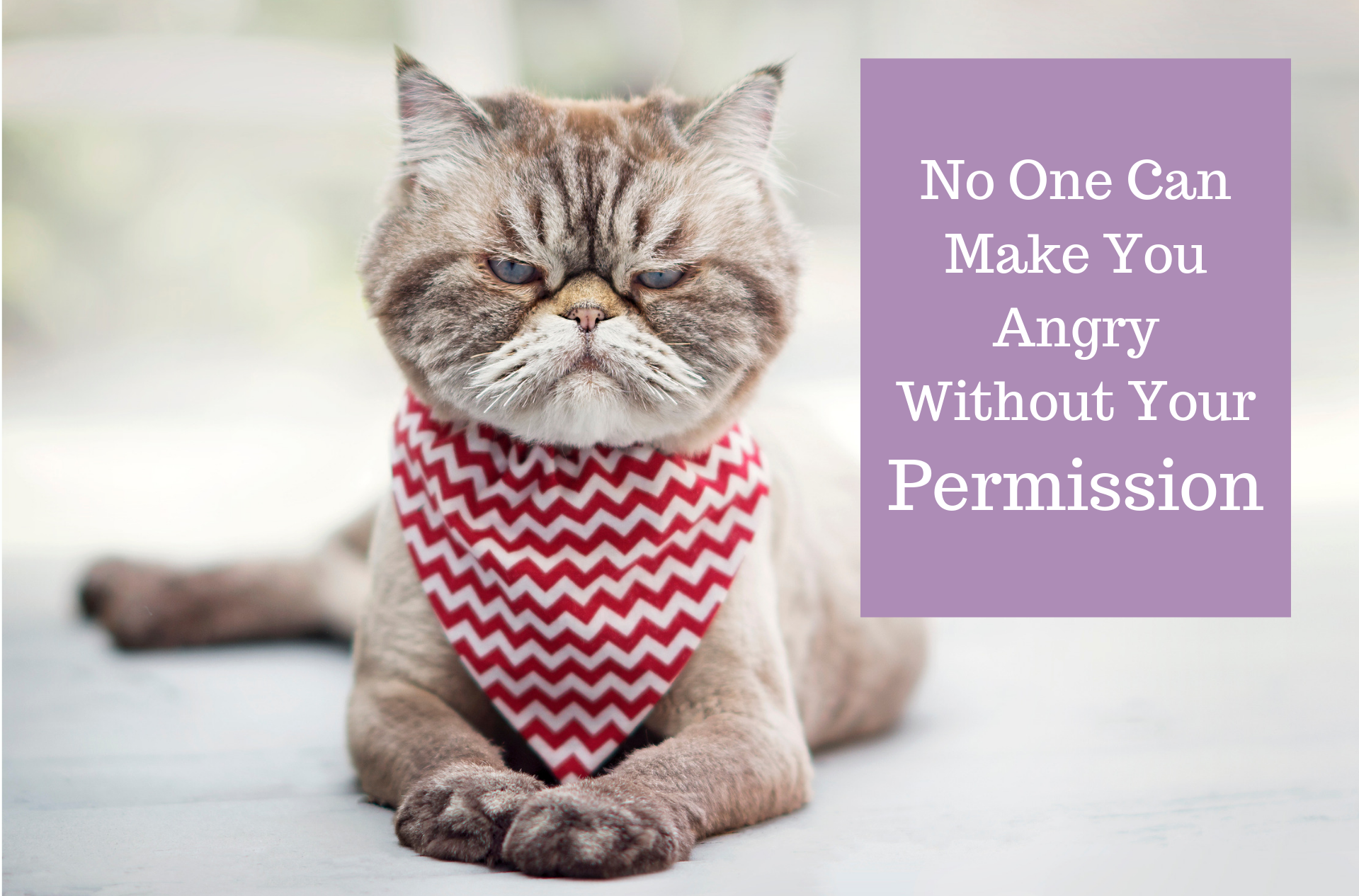 Have you ever said,
Have you ever said,
“She made me angry!”
or
“He made me feel that way”?
It’s completely their fault!
We all do it – we blame the way we feel on other people.
Then we feel like a powerless victim. After all, if it’s all their fault, then how can we do anything about it?
Eleneor Roosevelt said:
“No one can make you feel inferior
without your consent.”
Maybe it’s true that they can’t make you feel inferior.
But–A lot of people have taken that out of context and say,
“No one can make you feel any way
you don’t want to feel.”
Is it true that no one can make you feel anything?
Some would say it is.
I find that’s a very hard pill to swallow. How can I not be impacted by someone’s words and actions?
You mean it wasn’t him/her that made me feel so hurt?
You mean it wasn’t his/her fault that I felt so upset?
The truth is, other people do trigger emotional responses in us.
We’re not robots.
We’re emotional human beings.
But-by changing our inner voice and expectations we can manage those feelings of hurt, anger or not feeling good enough and not let them take over or get the best of us.
We can minimize the uncomfortable feelings versus intensifying them.
This is good news!
It means you do have some control over how you feel, and you aren’t just totally at the mercy of other people and situations!
You’ll never be perfect at it because we are all emotional, imperfect human beings but you can get WAY, WAY better at it.
Here’s an Example:
You accidentally overhear someone saying less than flattering things about you.
You could think:
“How dare they.”
“I’m not going to let them get away with that.”
Your emotion of anger gets the best of you and you VERBALLY ATTACK the person.
You could think:
“I’m just not good enough.”
“I can’t seem to do anything right.”
“I’ll never be adequate.”
You just WALK AWAY feeling sad, hurt and defeated.
You could think:
“They’re just going through a hard time right now,” or
“They’re just feeling some tough emotions right now.”
You walk away feeling EMPATHY and COMPASSION for them.
You could think:
“It’s more about what they have going on inside of them than it is about me.”
You walk away feeling EMPOWERED by your ability to not take it personal.
The last two options are people who have learned the skill of managing their inner voice.
They have used the power of their mind to their advantage.
They’ve chosen to think thoughts that
align with the emotions they want to feel.
Everyone responds differently depending on what’s going on inside of their mind.
Your thoughts have the ability to impact your emotions.
You do have the power to choose your interpretation or perception
of the situation.
Your expectations or rules also impact your feelings.
“People mustn’t say horrible things behind my back!”
“People must not say negative things about me!”
“People must not say things that might hurt me!”
When your rule gets broken the “or else’s” kick in.
“Or else it’s really bad.”
“Or else, I’ll get really, really mad.”
“Or else I can’t stand it.”
“Or else it means they’re a terrible, terrible person.”
“Or else, I’ll get back at them.”
“Or else, it will be terrible, horrible, awful.”
You also have the ability to change your HOW YOU THINK about your rules.
- “It would be nice if people didn’t say negative things about me.”
- “I don’t like it but I can tolerate it.”
- “I can choose to not react with anger about this.”
- “It’s irrational to think that people won’t ever say anything negative about me.”
- “I can’t control what other people do.”
- “There’s no law that says people must only say good things about me.”
- “In fact, it’s much more likely that they will. That’s life.”
Changing your inner voice and your rules is a vital skill to learn!
It benefits everyone!
Then people and situations won’t send you into an emotional tailspin that feels quite awful.
You’ll be more resilient which makes life so, so much easier!!
So decide today that you’re going to start taking responsibility for choosing how you feel versus having an automatic emotional reaction.
It’s not always easy but with practice and persistence, you can develop the skill of not being easily offended.
Start with the strategy of changing what your inner voice is saying to you about the other person or the situation.
When someone says or does something that “makes” you feel hurt or angry or any other kind of toxic emotion, take a couple of slow breaths to first help you PAUSE from your habitual emotional response.
Then, teach your inner voice a new perspective……
“I’d rather people never said anything bad about me, but I accept that it will happen. I can cope without getting upset and their opinion is just their opinion. It doesn’t determine my value.”
Changing your inner voice is worth practicing!
If you’d like to learn more strategies to take control of your mind which is the most powerful tool you have–e-mail Fay fay@fayprairie.com to set up a FREE, NO OBLIGATION 30 minute coaching session.

 Who’s choosing your channels??
Who’s choosing your channels?? Last week I wrote about managing emotions and I gave you the first three steps to get you started. Today we’re going to learn the next four steps.
Last week I wrote about managing emotions and I gave you the first three steps to get you started. Today we’re going to learn the next four steps.
